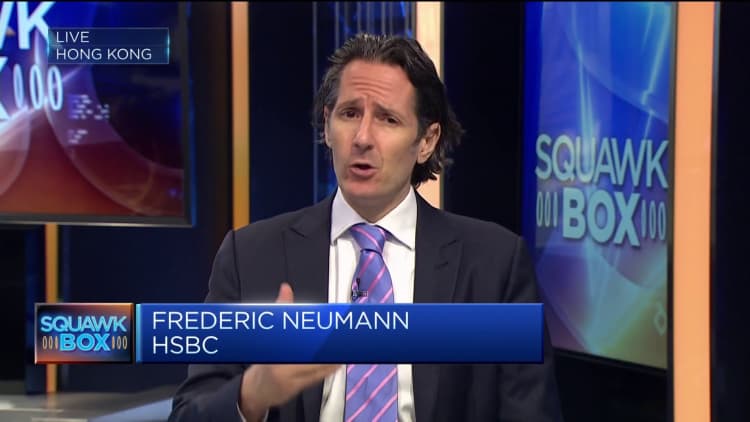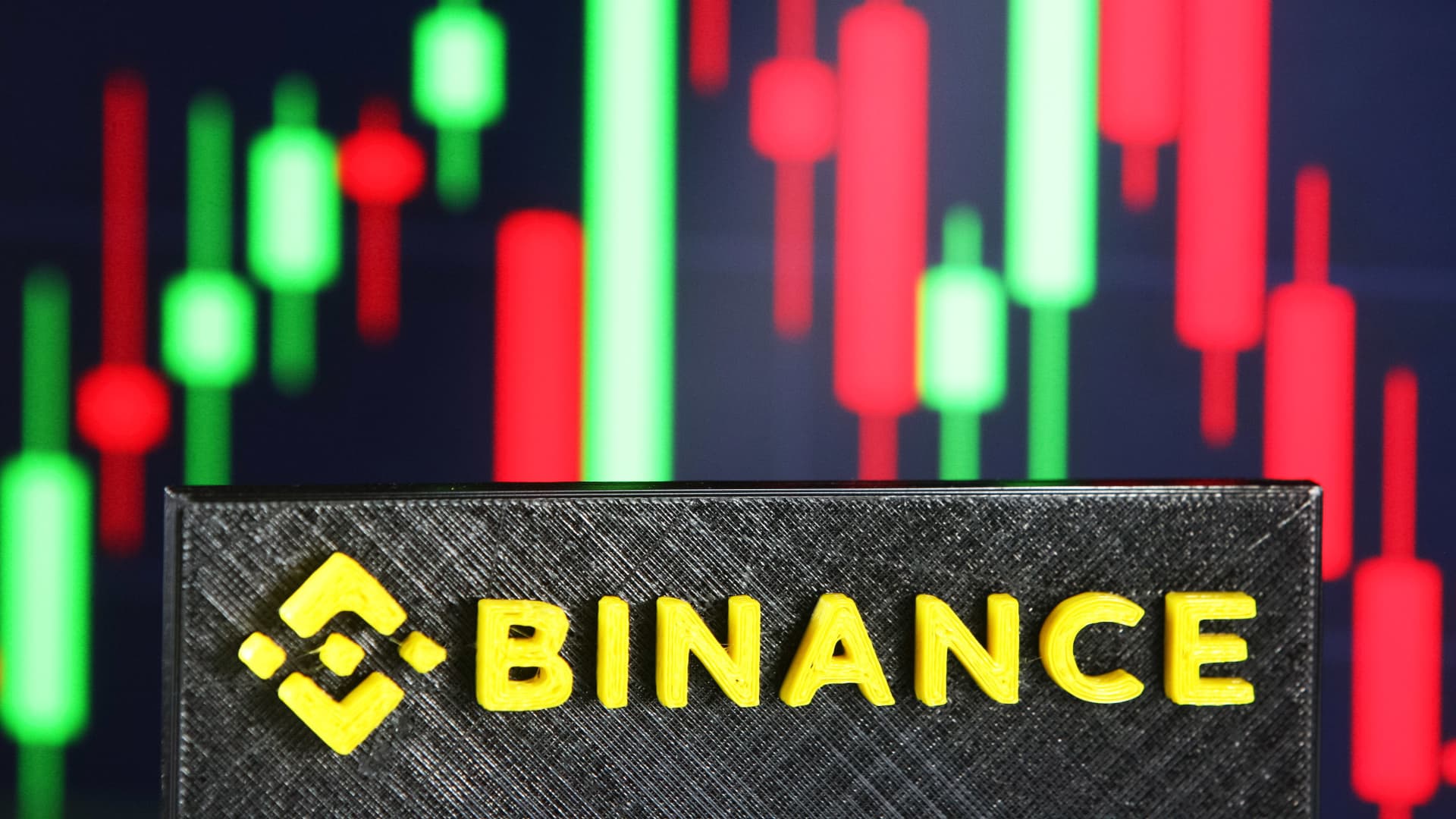Singapore narrows 2023 growth forecast on 'weak' external demand
The growth forecast was trimmed to between 0.5% to 1.5%, from an earlier range estimate of 0.5% to 2.5%, the Ministry of Trade and Industry on Friday.

A general view of the Central Business District and the Merlion, illuminated with a projection during the iLight Marina Bay on March 29, 2018 in Singapore.
Suhaimi Abdullah | Getty Images News | Getty Images
Singapore narrowed its economic growth forecast to a range of 0.5% and 1.5% for this year, citing sluggish external demand amid a weak global economy.
The growth forecast was trimmed from an earlier range estimate of 0.5% to 2.5%, said the Ministry of Trade and Industry on Friday.
Gross domestic product for the April to June quarter grew 0.5% year-on-year, falling short of the government's advance estimate of 0.7% announced in July.
"Singapore's external demand outlook for the rest of the year remains weak," the ministry said in a statement.
On a quarter-on-quarter seasonally adjusted basis, Singapore's economy eked out marginal growth of 0.1% — a reversal from the 0.4% contraction in the first quarter of this year, narrowly avoiding a technical recession or two consecutive quarters of contraction.

The exports-led manufacturing sector shrank by 7.3% year-on-year in the April-June period, worse than the 5.4% contraction in the previous quarter.
"Apart from the expected slowdown in Singapore's key external demand markets, the global electronics downturn is also likely to be protracted, with a gradual recovery expected towards the end of the year at the earliest," it noted.
Global downside risks
In particular, manufacturing output is likely to be "weighed down largely by output contractions in the electronics and precision engineering clusters given the global electronics downturn," the ministry added.
Growth in the finance and insurance sector is also expected to be sluggish as a result of continued weakness in the external economic situation and tight financial conditions.
The government also highlighted downside risks in the global economy remain, adding that the "outlook for the rest of the year remains tepid."
These include more persistent than expected inflation in the advanced economies, which could induce tighter global financial conditions and lead to a larger retraction in global spending.
The risk of escalations in the war in Ukraine and geopolitical tensions among major global powers could also lead to "renewed supply disruptions, dampen consumer and business confidence, as well as weigh on global trade," the ministry said.

 Koichiko
Koichiko 































